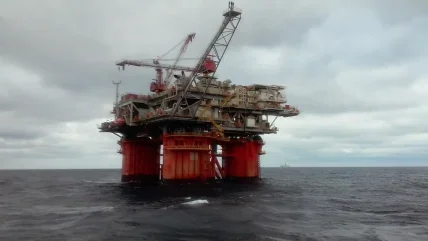
The New Zealand government has announced plans to introduce legislation by the end of this year to reverse the existing ban on offshore oil and gas exploration.
This move is part of efforts to address the nation’s ongoing energy shortages. Additionally, the government intends to remove regulatory barriers that hinder the importation of liquefied natural gas (LNG) to stabilise the country’s energy supply.
The proposed legislation will lift the ban, which has been in place since 2018, restricting exploration to the onshore Taranaki region on the North Island.
The current right-of-centre government is looking to attract investment into New Zealand’s oil and gas sector, a shift from the previous centre-left Labour-led government’s policy, which prohibited offshore petroleum exploration.
Energy Minister Simeon Brown reported a significant decline in natural gas production, with a 12.5% drop in 2023 and a further 27.8% decrease recorded in Q1 2024. This reduction has contributed to the nation’s energy challenges, leading electricity generators to rely more on coal and diesel to maintain power supply.
Brown said: “The lakes are low, the sun hasn’t been shining, the wind hasn’t been blowing, and we have an inadequate supply of natural gas to meet demand.”
The government has noted that renewable energy sources such as hydro, solar, and wind have not been sufficient to compensate for the shortfall in natural gas.
In response, the government is working to streamline the processes for consenting, building, and maintaining renewable energy infrastructure, including electricity distribution and transmission.
Brown mentioned that the time required to obtain consent for most renewable energy projects would be reduced to within one year. Additionally, the government plans to begin the first feasibility permit round for offshore renewable energy projects in 2025.
Prime Minister Christopher Luxon highlighted that recent energy shortages had caused energy prices in New Zealand to rise significantly, placing the country among the most expensive energy markets in the developed world.
During a media briefing, Luxon stated that the government was addressing a situation that New Zealand should never have encountered. He called on opposition parties to support the proposed legislation, describing it as a necessary measure for safeguarding the country’s energy security.
The Cabinet is reported to have approved a series of actions aimed at addressing the risks to New Zealand’s energy security and affordability.
Ministers are expected to present further options to the Cabinet in October 2024, focusing on reducing sovereign risk in LNG facilities and enhancing domestic gas production.






